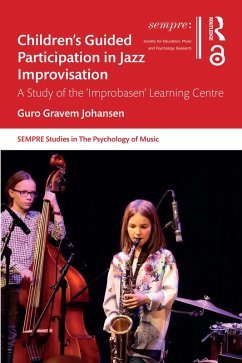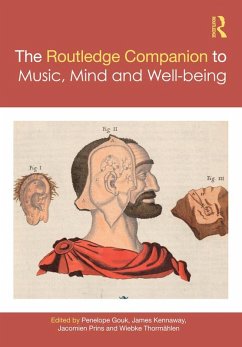
Body and Force in Music (eBook, ePUB)
Metaphoric Constructions in Music Psychology
Versandkostenfrei!
Sofort per Download lieferbar
39,95 €
inkl. MwSt.
Weitere Ausgaben:

PAYBACK Punkte
20 °P sammeln!
Our understanding of music is inherently metaphorical, and metaphoricity pervades all sorts of musical discourses, be they theoretical, analytical, philosophical, pedagogical, or even scientific. The notions of "body" and "force" are the two most pervasive and comprehensive scientific metaphors in musical discourse. Throughout various intertwined contexts in history, the body-force pair manifests multiple layers of ideological frameworks and permits the conceptualization of music in a variety of ways. Youn Kim investigates these concepts of body and force in the emerging field of music psychol...
Our understanding of music is inherently metaphorical, and metaphoricity pervades all sorts of musical discourses, be they theoretical, analytical, philosophical, pedagogical, or even scientific. The notions of "body" and "force" are the two most pervasive and comprehensive scientific metaphors in musical discourse. Throughout various intertwined contexts in history, the body-force pair manifests multiple layers of ideological frameworks and permits the conceptualization of music in a variety of ways. Youn Kim investigates these concepts of body and force in the emerging field of music psychology in the late nineteenth and early twentieth centuries. The field's discursive space spans diverse contexts, including psychological theories of auditory perception and cognition, pedagogical theories on the performer's bodily mechanism, speculative and practical theories of musical rhythm, and aesthetical discussion of the power of music. This investigation of body and force aims to illuminate not just the past scene of music psychology but also the notions of music that are being constructed at present.
Dieser Download kann aus rechtlichen Gründen nur mit Rechnungsadresse in A, B, BG, CY, CZ, D, DK, EW, E, FIN, F, GR, HR, H, IRL, I, LT, L, LR, M, NL, PL, P, R, S, SLO, SK ausgeliefert werden.













